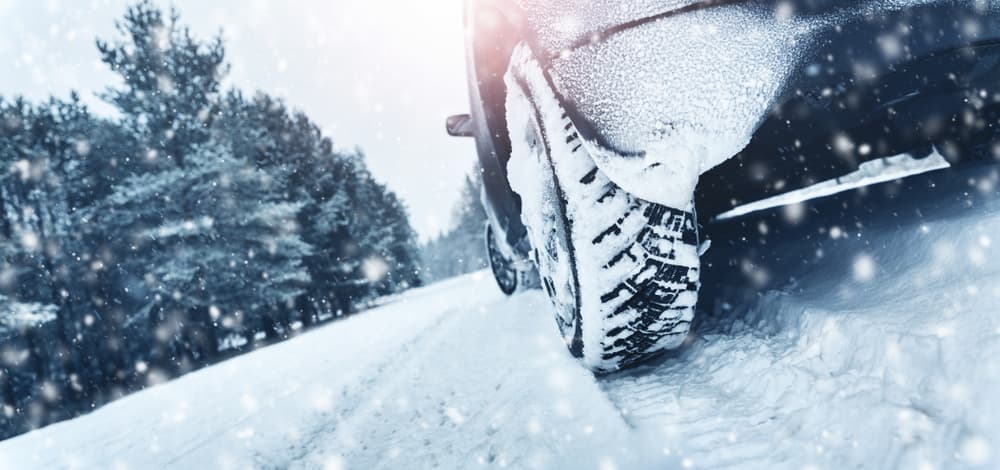Icy roads and poor visibility can make the winter a stressful and dangerous time to drive. But with some planning and preparation, you can stay safe and help protect others who are out on the road as well. Here are some safety tips for winter driving to remember each and every year.
Prepare Your Vehicle for Bad Weather
Winter weather can be unpredictable and intense. And the last thing any driver wants to endure is a sudden white out that leaves them stranded on the side of the road. To keep you and your family safe, we always recommend preparing your vehicle for any potential winter emergency scenarios.
This includes:
- Winter tires for better traction on slippery roads
- Scraper and brush to remove snow and ice from the windshield
- An emergency kit in your vehicle with a flashlight and jumper cables
- First Aid Kit
- Water and some non-perishable food in case you’re stranded for a long period of time
- Extra warm blankets
- A shovel
- Extra coolant, windshield fluid, and motor oil
Slow Down and Drive with Extra Caution
It seems obvious but it’s worth restating – winter weather requires extra caution when you’re out on the road. Slow down and avoid making any abrupt turns or braking suddenly. Doing so can cause the vehicle to skid out of control if you’re driving on icy roads.
Avoid Tailgating
Stopping times increase during the winter. To avoid accidents and unsafe situations, don’t tailgate vehicles in front of you. Give other drivers plenty of room so that you can stop safely if need be without causing harm or injury to yourself or those around you.
Be Prepared to Skid Out
If you live in a northern climate, you’ve likely skidded out before. Being prepared for it and knowing what to do when it happens can keep you and your passengers safe. Remember to turn in to the direction of the skid and accelerate. Even though this can feel unnatural to do, it redirects the weight of the vehicle to the rear which will help you control the vehicle.
Don’t Use Cruise Control
Avoid using cruise control at any point in time during the winter. The weather and road conditions are far too unpredictable. If your vehicle hits a snowy, icy or wet spot, you could end up hydroplaning.
Avoid Pumping the Brakes
Pumping the brakes can also impact your ability to maintain control of the vehicle. Instead, apply a consistent amount of pressure.
Don’t Forget to Switch on the Lights
Until the days start to stay lighter, later, make sure that your lights are switched on to improve visibility.
Be Aware of Your Surroundings
Keep your eyes on the road at all times and be aware of your surroundings. Also, keep an eye on other drivers, including truck and motorcycle drivers, and learn to anticipate their next move and so you can compensate and provide lots of space and braking time.
Keep a Charged Phone with You
Even if you’re heading out for a short drive, always have a phone with you. Make sure it is fully charged and keep an additional charger in your vehicle in case you need it.
Keep Emergency Contacts on Hand
If you get stuck on the road and need assistance, have emergency contacts on hand so you can easily contact them. Keep note of your local towing company or roadside assistance contacts and your insurance provider.
If you’ve been involved in an accident and need a dedicated personal injury lawyer in Ottawa, we can help. Contact David Hollingsworth Personal Injury Lawyers today to discuss your case.



